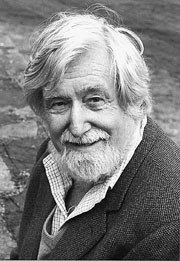 Clifford Geertz, an enormously important figure in modern social science, has died in Philadelphia at the age of 80. He has been a major influence on at least two generations of social scientists and his work profoundly shaped my own intellectual development.
Clifford Geertz, an enormously important figure in modern social science, has died in Philadelphia at the age of 80. He has been a major influence on at least two generations of social scientists and his work profoundly shaped my own intellectual development.I was particularly looking forward to reading his thoughts on ethnic diversity. Half a century ago a generation of Western scholars who had experienced the horrors of WWII, who were profoundly influenced by anti-colonialism, and who included a large number of people who were themselves representatives of ethnic minorities, established a consensual set of principles by which questions regarding ethnic diversity and identity were gauged. Today the assumptions underlying that consensus are being re-examined in the highest levels of academia. As he did so often in other areas of inquiry Dr. Geertz promised to make a major contribution to the ongoing dialogue that constitutes the academic enterprise.Dr. Geertz's landmark contributions to social and cultural theory have been influential not only among anthropologists, but also among geographers, ecologists, political scientists, humanists, and historians. He worked on religion, especially Islam; on bazaar trade; on economic development; on traditional political structures; and on village and family life. A prolific author since the 1950s, Dr. Geertz's many books include The Religion of Java (1960); Islam Observed: Religious Development in Morocco and Indonesia (1968); The Interpretation of Cultures: Selected Essays (1973, 2000); Negara: The Theatre State in Nineteenth Century Bali (1980); and The Politics of Culture, Asian Identities in a Splintered World (2002). At the time of his death, Dr. Geertz was working on the general question of ethnic diversity and its implications in the modern world.
....
Noting that human beings are "symbolizing, conceptualizing, meaning-seeking animals," Geertz acknowledged and explored the innate desire of humanity to "make sense out of experience, to give it form and order." In Works and Lives: The Anthropologist as Author (1988), Geertz stated, "The next necessary thing...is neither the construction of a universal Esperanto-like culture...nor the invention of some vast technology of human management. It is to enlarge the possibility of intelligible discourse between people quite different from one another in interest, outlook, wealth, and power, and yet contained in a world where tumbled as they are into endless connection, it is increasingly difficult to get out of each other's way."
He will be sorely missed.
No comments:
Post a Comment